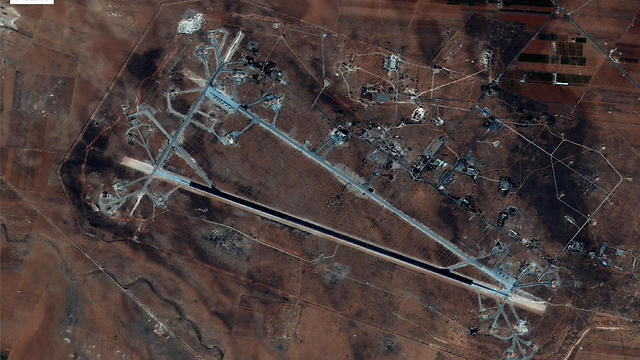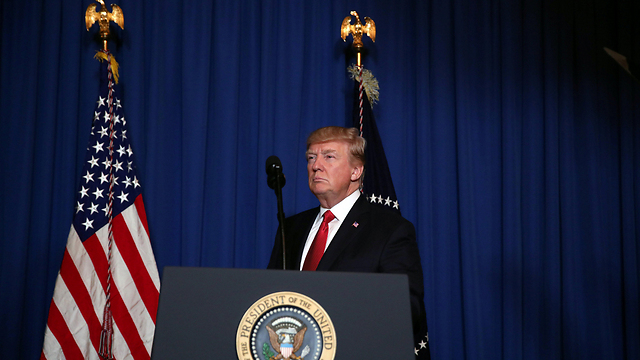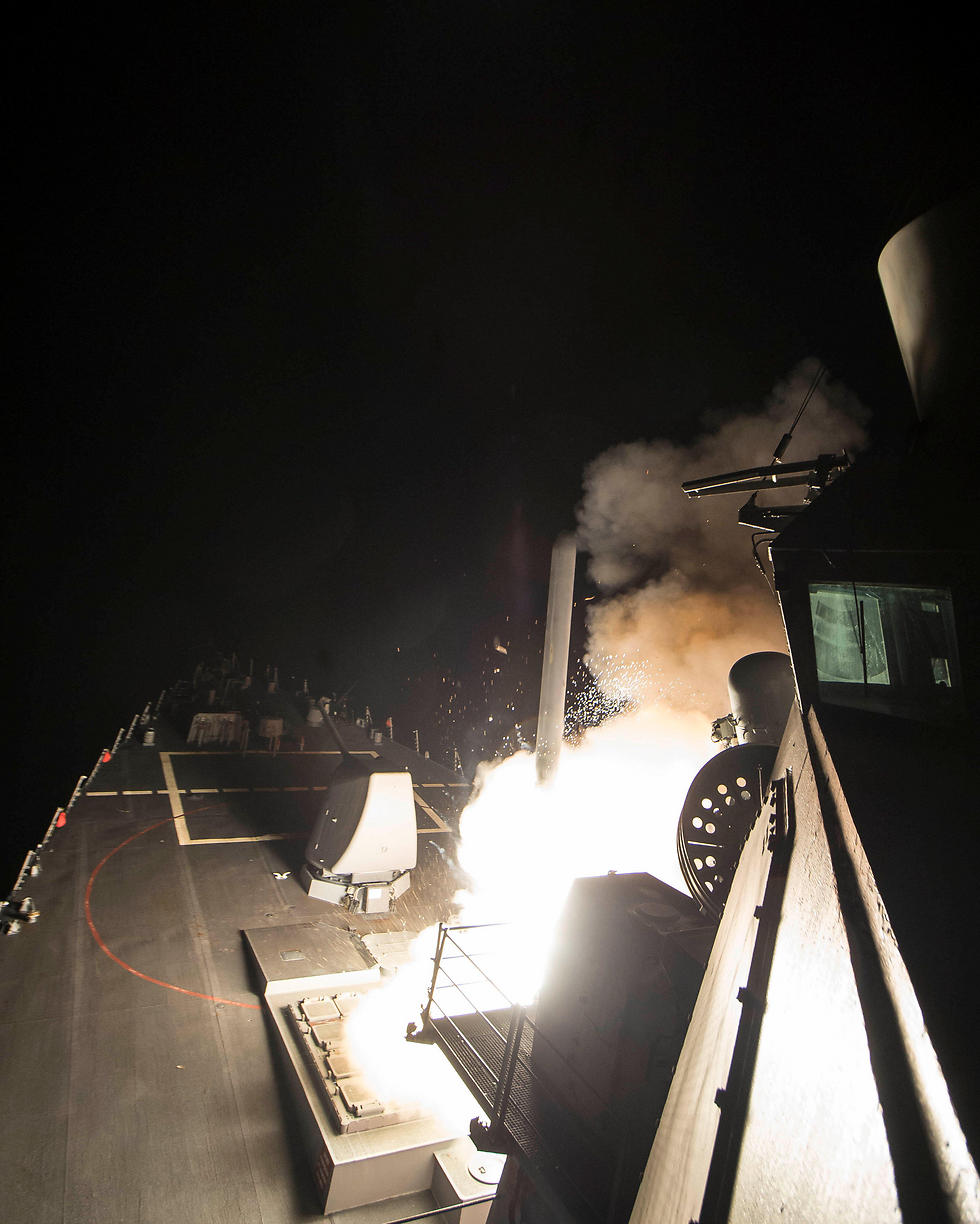Analysis: Through the US strike in Syria, Trump conveys a message to both Assad and Putin—as well as to Iran, China and North Korea—that, unlike Obama, he has red lines which must not be crossed. Russia’s response to the attack will likely remain diplomatic, as it’s hard to see Putin operating directly against US military targets.
In its strike in Syria on Thursday night, the United States conveyed a message to the world: We have red lines, and anyone who crosses them will experience the military force of the strongest power in the universe.
This message is directed first and foremost at rebellious regimes acting against international treaties, including Bashar al-Assad’s regime in Syria, North Korea and Iran. This message is also directed at Russia and China, who are provoking the Americans in the Indian Ocean. The US, President Donald Trump is essentially saying, won’t stand idly by while human ethics are being violated.

It was a surgical strike. It included accurate cruise missiles, which are capable of hitting the window of a house but carry extremely heavy warheads, against hardened aircraft shelters (HAS) and against fueling stations and facilities, which were likely the cause of fires at the Syrian military airfield in the Homs area. The same airbase serves the Russians as well, but Trump was undeterred by that. Israel struck in the surrounding area two weeks ago, and antiaircraft missiles were fired at the Israel Air Force planes from the same area.
The red line set by Trump has to do with four reasons for a violent yet proportional and focused response: The use of deadly chemical weapons (and not chlorine gas); the violation of the international treaty which outlaws the production, stockpiling and use of such weapons; the violation of a United Nations Security Council resolution; and the threat to US interests. By these interests, Trump is referring to the threat to US allies in the region, led by Turkey and Israel, which may be the next target of the chemical weapons.

In order to limit the damage and keep the message focused, the US informed all parties involved—including Russia, apparently. Trump emphasized that he has no intention of toppling Assad, but that if American interests are threatened, Russian President Vladimir Putin will suffer too. The main message is: You can’t do as you please in the Middle East.
Solid intelligence
I believe Russia will protest the strike, but a military response is unlikely. It’s hard to imagine Putin operating directly against the US, against the Sixth Fleet destroyers that the Tomahawk missiles were fired from or against American bases in Turkey.
There will be a harsh diplomatic response, but that’s it. In its current situation, both economic and military, Russia cannot afford an overall conflict with the US. The military activity against the rebels in Syria may be intensified, while at the same time—in order to protect his interests—Putin will restrain Assad. He will do it quietly, but with an iron fist, so that the Syrian president doesn’t embarrass him once again.

The Russians are embarrassed anyhow by the fact that their planes are operating from the same airfield out of which the aircraft with Assad’s chemical weapons departed. It’s safe to assume that Trump would have not attacked the base near Homs, which includes Russian presence, without receiving solid intelligence, from different sources, on the operation.
The message which was conveyed in advance to the Russians—and to Israel too—came shortly before the strike, leading to losses in the Syrian army, which had no time to prepare for the attack. Assad suffered considerable damage, as this is the base which is used for attacks against Islamic State targets in eastern Syria.
A mini Pearl Harbor
As far as the Middle East is concerned, this is a mini Pearl Harbor. The operation is good news for Israel, Saudi Arabia and Turkey because the US has made it clear that it views the use of non-conventional weapons as a red line, and that if such weapons are used—it will act as if the US itself has been attacked.

The bad news is for Iran, which keeps testing ballistic missiles in defiance of a UN resolution. The US is now warning the Iranians with a yellow card, not just in regard to its missile tests but also in regard to its nuclear agreement with the world powers. If they thought they would be able to violate the agreement and get away with it like Assad, they will now think twice. This holds good news for Israel too, which has voiced concerns over Iranian presence in the Golan Heights.
From a broader perspective, the diplomatic message is directed at China as well, which is violating treaties in the South Sea. The fact that Trump ordered the strike while hosting the Chinese president in Florida speaks for itself. In fact, anyone who has been affected by the Iranian, North Korean and even Chinese violations of world order should now take into account that the Trump-led US has red lines which must not be crossed.
Former US President Barack Obama is probably asking himself right now if he should have acted differently. Obama gave up on that red line, and Assad kept massacring Syrian civilians with Russian backing.
As reported by Ynetnews
